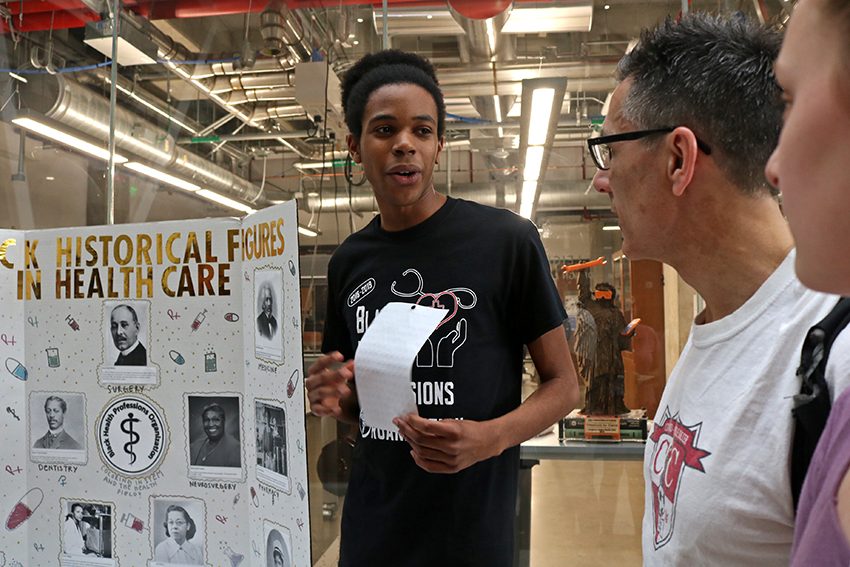The Cockrell School of Engineering and the College of Natural Sciences hosted the first Black Excellence in STEM festival on Friday to showcase significant black figures and their contributions to the STEM field.
“We wanted to celebrate our black students and also those who contribute to the STEM field,” said Johnny Hill, academic coordinator for the Equal Opportunity in Engineering Program. “(The idea) actually came about a couple of years ago, at least last year, and today it came into fruition.”
In fall 2018, UT reported that approximately four percent of students on campus identified as black. Chemical engineering junior Corrinne Cassel, who helped organize the festival, said the fact that black students are an underrepresented minority increases the importance of this event.
“I know I go to a lot of my classes and I’m often the only black person, or one of a handful,” Cassel said. “I know a lot of people necessarily don’t feel that way, but I feel kind of isolated. This is a way to celebrate our culture and get other people to know what we’re about.”
The festival featured different stations showcasing black historical figures in the STEM industry. Attendees could participate in a scavenger hunt or visit different stations in exchange for food. Performances also took place during the event including spoken word poetry, a capella and Ubuntu dance, which involved energetic dancing and rhythmic music.
Aerospace engineering junior Cohovi Aimihoue said he went to the event to support its cause and said he learned more about the first black person admitted to UT Austin, Jon Hargis.
“They’re celebrating black excellence, and that’s something that we don’t hear about often,” Aimihoue said. “As a black person, I just enjoy being on this campus. But back in the days, it was not like that. Listening to all the stories kind of reminds me of our success.”
While the festival was officially hosted by CNS and Cockrell, multiple student organizations, including the National Society of Black Engineers and the Association of Black Computer Scientists, were involved in the process.
“It was really recent that black students were like discriminated against,” said Marissa Jenkins, computer science sophomore and president of the Association of Black Computer Scientists. “I just think it’s important that we recognize how far we’ve come and that we can keep growing.”





















